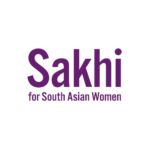Supporting and Developing Practitioners
We offer trainings and workshops rooted in credible research, our daily on-the-ground work, and advocacy within the South Asian immigrant population in New York City. Taking an intersectional perspective, our offerings define cultural sensitivity and humility, share trends and barriers faced by our community, identify strategies for cultural humility and understanding, and discuss best practices for case management and community work. Click here to learn more about the training we offer.
In addition, Sakhi takes direct responsibility for nurturing the growth of future practitioners and facilitating a leadership pipeline. Every year, we host interns and volunteers across all of our programs, including clinical supervision for students pursuing a Masters in Social Work. In fact, several of our current staff members are former volunteers or interns!
Working in Partnerships & Coalitions
Sakhi is committed to an intersectional, survivor-centered movement for gender justice. As survivors of violence do not live “single-issue lives” (Audre Lorde), Sakhi’s collaborations link different issue areas, geographies, and identities.
Some current examples of these key partnerships include:
The Collective
Sakhi is a founding member of “The Collective,” a collaborative of five community organizations that provide direct services and advocacy for, with, and by survivors of gender-based and domestic violence. Participating organizations include: The Arab-American Family Support Center, Sakhi for South Asian Women, Sauti Yetu Center for African Women and Children, Violence Intervention Program, and Womankind.
We build collective power based on our decades of experience supporting survivors from Black, Latinx, Asian, South Asian, Arab, and immigrant communities. As a member of the Collective, Sakhi has helped secure collaborative multi-year funding to advance our shared three-pronged, survivor-centered policy agenda of economic justice, immigration justice, and healing justice.
South Asian SOAR
Sakhi is a founding member of South Asian SOAR, a national collective of survivors, 30+ organizations, and allies advancing the movement to end gender-based violence in the South Asian diaspora. SOAR’s mission is to grow survivor and collective power to transform the culture and systems that lead to violence.
Recently, South Asian SOAR launched South Asians for Abortion— a digital platform to mobilize South Asians for abortion, reproductive justice, and bodily autonomy in a post-Roe America. This digital platform serves as a place to read and share abortion stories, access and contribute to resource mobilization, and engage with advocacy that centers the voices and needs of South Asians.
AAPI solidarity
In 2021, Sakhi, working with other community leaders, helped win ten million dollars in new funding in NY State’s budget for Asian American community-based organizations addressing anti-Asian violence and bias. Our advocacy also helped win $2.5 million to disaggregate data about New York State’s diverse AAPI population. We work in active partnership as members of the Coalition for Asian Children and Families (CACF) and the Asian American Federation (AAF).
Amplifying the Voices of Survivors
We work to ensure that our diverse communities’ voices are heard through social media, in the press, and in our neighborhoods.
In October 2021, in honor of Domestic Violence Awareness Month (DVAM), Anti-Violence Program Senior Manager Shyda Rashid joined in conversation with Kamrun Nahar, a pharmacy technician and survivor in the Sakhi community, on TBN24. In this segment on TBN24— which is the first 24/7 Bangla live television channel in the United States— Shyda and Kamrun spoke to themes of survivorship, the journey to self-determination, and the unique challenges of the Covid-19 pandemic.

